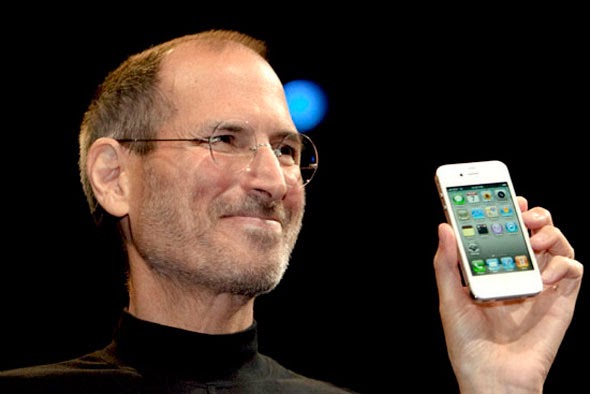Thursday, 11 September 2014
This Man Was One Of Many Tech CEOs Who Limited His Kids' Use Of Technology--Why You Should Too
Have kids? Prone to sticking them in front of a screen to keep them quiet while you're cooking dinner or checking your mobile phone, or shopping, or just too tired to deal with them? Do you have kids who insist on playing their mobile devices, video game after video game, or just "needing" to email or text their friends, or all three? Or how about the seemingly most banal and well-intentioned decision to allow your kid extra time to do homework on their computer?
How do you think the top tech CEOs run things in their households regarding screen time?
In a recent New York Times Article, aptly called, "Steve Jobs Was A Low-Tech Parent," Nick Bilton shares a 2010 phone conversation he had with Jobs after the latter reamed him out for an article he wrote on the iPad--an insight into Jobs's family life that blew him away:
"So, your kids must love the iPad?” I asked Mr. Jobs, trying to change the subject. The company’s first tablet was just hitting the shelves. “They haven’t used it,” he told me. “We limit how much technology our kids use at home.”
This revelation got Bilton interested in how other tech CEOs and venture capitalists orientated themselves to technology in their homes. His discovery should give us pause:
"Since then, I’ve met a number of technology chief executives and venture capitalists who say similar things: they strictly limit their children’s screen time, often banning all gadgets on school nights, and allocating ascetic time limits on weekends."
Bilton notes that Chris Anderson, the former editor of the high-tech publication, Wired, and now the CEO of 3D Robotics, a drone maker, has seemingly rather severe limits on his children's screen time. Anderson explains:
“My kids accuse me and my wife of being fascists and overly concerned about tech, and they say that none of their friends have the same rules,” he said of his five children, 6 to 17. “That’s because we have seen the dangers of technology firsthand. I’ve seen it in myself, I don’t want to see that happen to my kids.”
And those dangers that Anderson describes are those such as bullying, pornography, and becoming addicted to their devices as much as many parents are.
If this is the case that CEOs of tech companies really have such stringent rules around screen time at home, why is it that in most other homes, the daily average amount of time kids are spending in front of devices is surging? What these CEOs know that many do not know, or perhaps know but don't seem concerned about, is that time in front of screens is harmful to kids.
In the Learning Habit Study, a research study put out this month in the American Journal of Family Therapy, it is shown, based on the habits of 46,000 homes across America, that screen time affects all aspects of a child's life. For instance, the research shows that after 30 minutes of screen time per day, the child's grades show a steady decline; after 2 hours per day of screen time, the drop in academic performance is drastic. And it's not just academic performance, but also a disturbance of sleep patterns, the amount of time it takes for a child to fall asleep, and, in cases of high amounts of screen time, a greater chance of social volatility and lack of integration.
In our next post, we'll give tips for slowly but steadily drawing your kids away from their screens and integrated into healthier activities.
Subscribe to:
Post Comments (Atom)


No comments:
Post a Comment